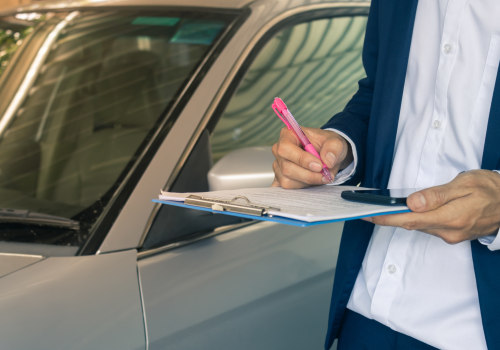Unfortunately, insurance companies can and do deny policyholder claims sometimes, often for legitimate reasons, but sometimes not. Whether an accident or car theft insurance claim is denied, it's important to understand the main reasons why your claim might be denied and what you can do if it happens. When you take out car insurance, you must select the type and extent of coverage you want to buy. Generally, having higher coverage limits will help you get the payment you need after a covered incident.
The type of coverage you select will also determine if the insurer will cover the claim. However, there's nothing an insurance company can do once your claim exceeds its coverage limits or if you simply don't have coverage. Can an insurance company deny a claim? Yes, they can deny claims and in fact they do so on a regular basis. If you're in the unfortunate situation of having to file a car claim, you'll want to make sure you get the fairest settlement from your insurance company.
If a claim appears to be mistakenly denied, you may need to take steps to determine if there is any way to overturn or reconsider the decision. Insurance claims are often denied if there is a fault or liability dispute. Companies will only agree to pay you if there is clear evidence to show that the policyholder is at fault for your injuries. If there is any indication that the policyholder is not responsible, the insurer will deny your claim.
An auto insurance claim will be denied if you drive a faulty vehicle or use your vehicle for purposes not set out in the insurance policy. In addition, if you've been negligent with your car or made modifications that you haven't reported to the DMV, you risk having your auto insurance claim denied. Do not sign any document that accepts the settlement amount or cash any insurance checks until you have considered the process of filing a dispute; cashing a check may constitute acceptance of the agreement and you may not be able to contest your case after that. Insurance companies will carefully review your claim for benefits to determine the cause of your injuries.
If your claim is denied, you will receive a rejection letter stating why your car insurance will not be paid. Now that you know the most common reasons why this happens, you can take all necessary steps to prevent your auto insurance claim from being denied. Insurance coverage exists to ensure that injured victims have resources available after an accident. Through a process called subrogation, your insurer can help you recover expenses from the other driver's insurance company.
If you've reviewed your policy and truly believe you've been treated unfairly, there may be steps you can take to work with your insurer and make a decision that both you and the company are happy with. However, if your car is stolen or causes an accident, the insurance company won't be able to help you without proper coverage. If there is evidence to show that more than one person is at fault, the insurer will likely deny your claim for benefits. If you are in a car accident with an uninsured driver, your car insurance may refuse to pay the claim.
After a car accident or incident, you'll want to know that your insurer will support you through the claim process. However, if you don't tell the insurance agent about the DUI, you risk getting into more serious trouble. Turns out the owner recently opened a new store and didn't make the proper changes to his insurance policy. Many insurers allow you to start the claim process through the provider's website, which means you should be able to do so while you wait for the police to arrive.
Get the other driver's insurance information immediately after the accident and never let the other driver convince you not to call the police. .



